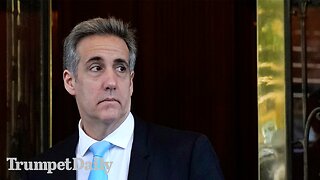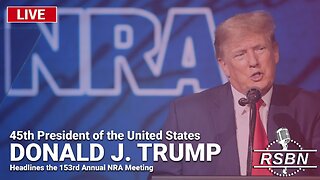The Lies of Keynesian Economics with Peter St Onge
SHOW NOTES:
https://www.whatbitcoindid.com/podcast/the-lies-of-keynesian-economics
Peter St Onge is an Economist at the Heritage Foundation and a Fellow at the Mises Institute. In this interview, we discuss the differences between Keynesian and Austrian economics, the role of marketing in shaping public opinion, and the potential of Bitcoin to displace central banks and cut off one of the main channels that governments use to seize people's resources.
THIS EPISODE’S SPONSORS:
Iris Energy - https://irisenergy.co/
Wasabi - https://www.wasabiwallet.io/
Ledn - https://www.ledn.io/
Ledger - https://www.ledger.com/
Unchained - https://unchained.com/
SUPPORT THE SHOW:
→ Become a Patron: https://www.patreon.com/whatbitcoindid/
→ Subscribe on iTunes
→ Leave a review on iTunes
→ Share the show out with your friends and family on social media
→ Drop me a line on hello@whatbitcoindid.com
→ https://www.whatbitcoindid.com/sponsorship/
TIMESTAMPS:
00:00:00 Introduction/Background
00:06:29 Keynesian economics versus Austrian economics
00:16:52 Economics in education; infantilisation of political discourse
00:31:58 Difficulty in operating a business in the US and UK
00:48:44 What should the role of government be?
00:56:57 Gold versus Bitcoin; a hyperbitcoinised world
01:11:48 Miami conference; the banking crisis
WHERE TO FIND THE SHOW:
→ My website: https://www.whatbitcoindid.com/podcast/
→ iTunes: https://apple.co/2OOlzVV
→ Spotify: https://spoti.fi/2ygc4W1
→ Stitcher: https://bit.ly/2IQO8fX
→ SoundCloud: https://bit.ly/2CGSVQR
→ YouTube: https://bit.ly/3nyi9Ez
→ TuneIn: https://bit.ly/2ywystr
LISTEN TO OLD EPISODES:
→ By guest: https://www.whatbitcoindid.com/guests/
→ By topic: https://www.whatbitcoindid.com/topics/
→ Transcriptions: https://www.whatbitcoindid.com/transcriptions/
WHERE TO FOLLOW ME:
→ Twitter: https://twitter.com/whatbitcoindid/
→ Medium: https://medium.com/@whatbitcoindid/
→ Instagram: http://instagram.com/whatbitcoindid/
→ Facebook: https://www.facebook.com/whatbitcoindid/
→ YouTube: https://www.youtube.com/whatbitcoindidpodcast
→ Website: https://www.whatbitcoindid.com/
→ Email list: https://www.whatbitcoindid.com/subscribe/
LEARN ABOUT BITCOIN:
→ Step by Step Guide: https://www.whatbitcoindid.com/learn-bitcoin
→ Training: https://www.whatbitcoindid.com/training/
→ Resources: https://www.whatbitcoindid.com/resources/
#Bitcoin #Finance #Economics
****
“I want the frog to understand the water is getting hot before it actually boils. I want the people to understand the crap that’s being done to them before it actually starts to destroy their lives.”
— Peter St Onge
Peter St Onge is an Economist at the Heritage Foundation and a Fellow at the Mises Institute. In this interview, we discuss the differences between Keynesian and Austrian economics, the role of marketing in shaping public opinion, and the potential of Bitcoin to displace central banks and cut off one of the main channels that governments use to seize people's resources.
- - - -
Keynesian economics developed in the wake of the Great Depression of the 1930s. Its aim was to stabilise the volatility caused by market forces through the application of government and central bank resources. Its critics state it has opened up a range of tools that governments have exploited for short-term gain, whilst building up ever greater problems for future generations.
Keynes was mocked by major contemporary figures. Winston Churchill, who didn’t believe that state borrowing and expenditure could provide permanent additional employment, famously once said “If you put two economists in a room, you get two opinions, unless one of them is Lord Keynes, in which case you get three opinions.”
And yet, governments, on both sides of the political debate, seem to be currently addicted to greater monetary and fiscal interventions in the economy than at any time since the 1930s. Such actions started in 2008, but have continued apace since. They are a major factor in why global debt now stands at an eye-watering $305 trillion.
Hayek, the famous Austrian economist, foresaw the coming crisis, concluding that monetary policy only does harm to an economy. In 1976 he called for the denationalisation of money. In a famous 1984 interview, he stated “I don't believe that we should ever have a good money again before we take the thing out of the hands of government… all we can do is by some sly or roundabout way introduce something they can't stop.” Hayek essentially foresaw Bitcoin.
Unsurprisingly, Bitcoin’s trajectory, as an incorruptible digital hard money, started as the deflated global economy was patched up with Keynesian policies in 2009. Over 14 years later, as these policies become ever more unsustainable, it seems like we’re on the cusp of a swing of mainstream opinion away from Keynesian policies, to policies predicated on Austrian economic principles. And Bitcoin could be the centre of this new paradigm.
-
 1:00:55
1:00:55
What Bitcoin Did
5 days agoHow Bitcoin Changes the World with NVK
2231 -
 1:04:07
1:04:07
Trumpet Daily
1 day ago $1.81 earnedHot Take for the Regime: Michael Cohen Has No Credibility - Trumpet Daily | May 17, 2024
2.65K8 -
 57:09
57:09
CutJibNewsletter
18 hours agoYou've Got a Fiend - Cut Jib Newsletter Speaks!
40 -
 LIVE
LIVE
Kaloopy - The Eye Candy Channel
4 hours agoKaloopy - Eye Candy - Episode 1
328 watching -
 3:09:47
3:09:47
Turtleboy Daily News
10 hours agoEp663 - Karen Read Trial: Matt and Jen McCabe, Colin Albert Testimony
34.5K38 -
 4:47:16
4:47:16
SonnyFaz
5 hours agoSonny Debates OF Chug Jug Girl LVL 97
26.4K29 -
 1:06:35
1:06:35
The Kirk Minihane Show
8 hours ago420 Show
27.4K4 -
 31:28
31:28
Alexis Wilkins
17 hours agoBetween the Headlines with Alexis Wilkins: Wisconsin Supreme Court, Psaki's Book, Debates, Border
33.1K30 -
 LIVE
LIVE
Right Side Broadcasting Network
12 days agoLIVE REPLAY: President Trump Headlines the 153rd Annual NRA Meeting - 5/18/24
5,559 watching -
 35:50
35:50
TheTapeLibrary
1 day ago $0.02 earnedThe Disturbing True Story of The Amityville Horror
27K15